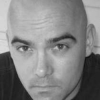Philipp Meyer

Philipp Meyer
Philipp Meyeris an American fiction writer, and is the author of the novels American Rust and The Son, as well as short stories published in McSweeney’s Quarterly, The Iowa Review, and Esquire UK. Meyer is the recipient of a 2010 Guggenheim Fellowship. He grew up in Hampden, a blue-collar Baltimore, Maryland, neighborhood often featured in the films of John Waters. His mother is an artist; his father is an electrician turned college biology instructor. Meyer considers his major literary influences...
NationalityAmerican
ProfessionWriter
CountryUnited States of America
When we think of the myth of the settling of the West, this is our creation myth. But because we think of it as mythology, not as real people interacting with other real people, we ignore the cost of human lives and blood.
My ideal is to write most of the day, then go running, find friends and socialise all evening; my mind recharges with human contact.
Fundamentally, all art is about human beings. You're always showing larger moral questions through the smaller moral, philosophical, or political choices through one character in the book.
There's a reason that all societies and cultures and small bands of humans engage in myth-making. Fundamentally, it is to help us understand ourselves.
When you look at 'Grapes of Wrath,' the weakest moments are those in which Steinbeck is spouting a political idea directly at the reader. The book's real power comes from its slower, broader movement.
Whenever I'm interested in something, I make sure I'm really good at it.
What art and books do at their best is investigate why we are the way we are.
Since I quit banking, all my major life decisions, when they could, have revolved around writing.
I thought that I would have a huge literary novel coming out when I was, like, 29. I quit my banking job, and I was halfway through my second novel - and I will never publish it, because it's very mediocre.
Life throws up enough road blocks to keep you from writing; you can't be adding to them yourself by saying you can only write in one specific place. I'm in New York half the time and Texas half the time, and I work wherever - in my computer bag I have some foam ear plugs that I can put in.
My parents have always been incredibly supportive. Even when I dropped out of high school, they said, 'We trust you, we believe in you.'
When you take the fact that you're loved for granted, it frees your mind to go after every other thing there is.
I'm interested in getting deep into a person's consciousness and doing so in ways in which the narrator is secondary to the character's own thoughts.
I try to begin writing as close to a dreamlike state as I can get.